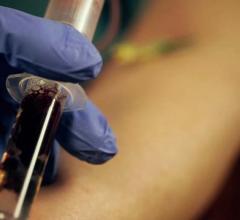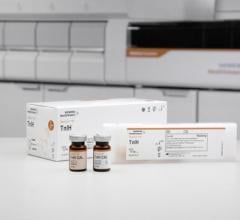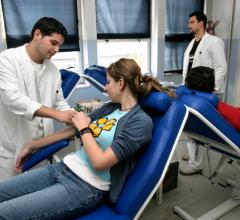June 5, 2007 — Men whose blood tests positive for the auto-antibody rheumatoid factor have a three times higher risk of heart disease, according to a study published online ahead of print in Heart.
This increased risk was similar to that found for the well-known risk factors of diabetes (2.5 times) and high blood pressure (4.4 times). However, rheumatoid factor was not found to increase the risk of heart disease in women.
The findings add more weight to the growing evidence that inflammation is implicated in atherosclerosis - a hardening of the arteries, when fats are deposited in the artery walls. It also raises the possibility that auto-immune processes and rheumatoid factor in particular may actually have a role in the disease process itself.
This build up of fatty deposits reduces blood supply to the heart (known as ischaemic heart disease) leading to angina and an increased risk of heart attack.
Rheumatoid factor is an auto-antibody present in up to 15% of adults and is strongly associated with rheumatoid arthritis. Chronic inflammatory diseases, such as rheumatoid arthritis, have been shown previously to increase the risk of ischaemic heart disease.
However, the prevalence of rheumatoid arthritis in men in the UK is only about 0.4 per cent, so rheumatoid factor therefore seems to be an independent risk factor in men. Rheumatoid factor can be measured by a simple blood test available in all hospitals.
The study involved 567 men and 589 women born between 1931 and 1937 who were assessed for a history of ischaemic heart disease, rheumatoid factor and traditional risk factors for heart disease. They were also assessed for other common auto-antibodies (antinuclear antibodies and anticardiolipin antibodies), but no link to increased risk of ischaemic heart disease was found.
Another inflammatory marker C-reactive protein has also been linked to the development of ischaemic heart disease in previous studies.
The autoantibody rheumatoid factor may be an independent risk factor for ischaemic heart disease in men.
For more information visit: www.heart.bmj.com


 October 09, 2019
October 09, 2019 









